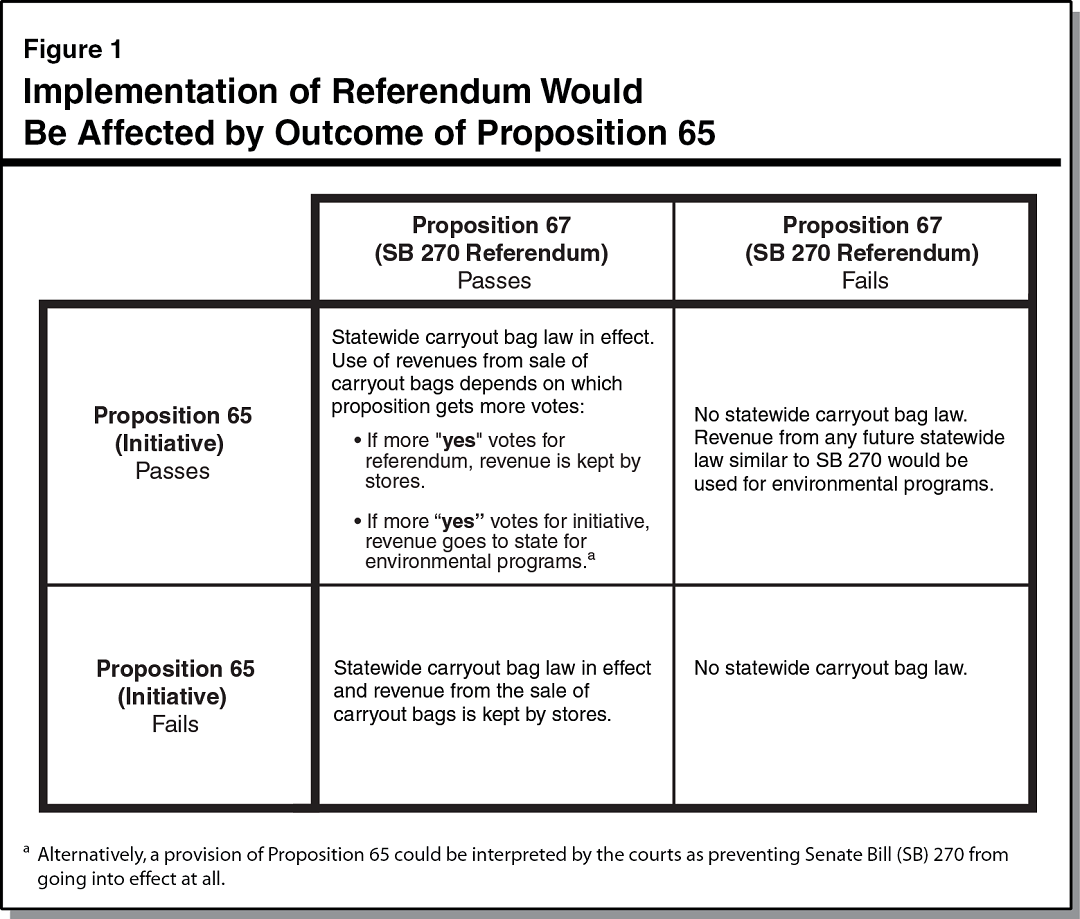Official Summary
Redirects money collected by grocery and certain other retail stores through mandated sale of carryout bags. Requires stores to deposit bag sale proceeds into a special Wildlife Conservation Board fund to support specified environmental projects.
Fiscal Impact: Potential state revenue of several tens of millions of dollars annually under certain circumstances, with the monies used to support certain environmental programs.
- Official CA Voter Guide Summary
- Legislative Analyst Office Analysis
- Show Me The Money (as of Oct 22)
- support: $6,100,000
- oppose: $0
- Ballotpedia Summary
Notes
- law was passed (SB 270) in 2014 requiring stores to charge at least 10 cents for carryout bags, and stores keep those monies. If this referendum passes it will go into effect, if not it will be repealed.
- funds from minimum charge for single use bags would now go into the Environmental Protection ad Enhancement Fund instead of being kept by retailers
- relevant for stores with gross annual sales of over $2 Million of groceries, is over 10,000 sf including pharmacy or is a convenience store that has a liquor license
- Environmental Protection ad Enhancement Fund grants for:
- drought mitigation
- recycling
- clean drinking water supplies
- state, regional and local parks
- beach cleanup
- litter removal
- wildlife habitat restoration
- max 2% admin fees
- $400k for annual audit
- Proposition 67 also concerns single use bags. Here's what would happen if each passes/fails.



